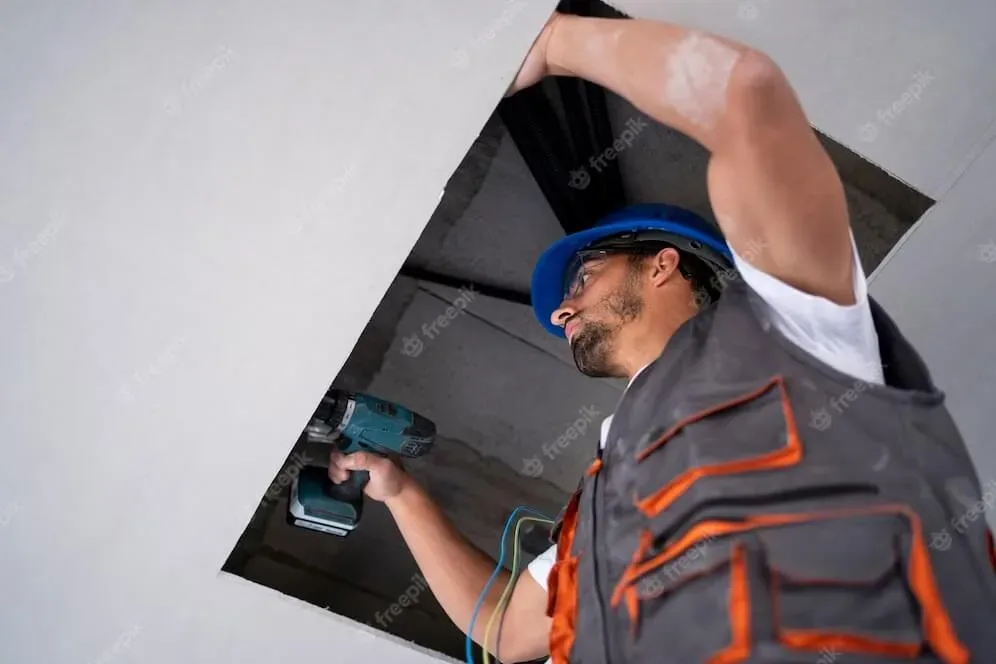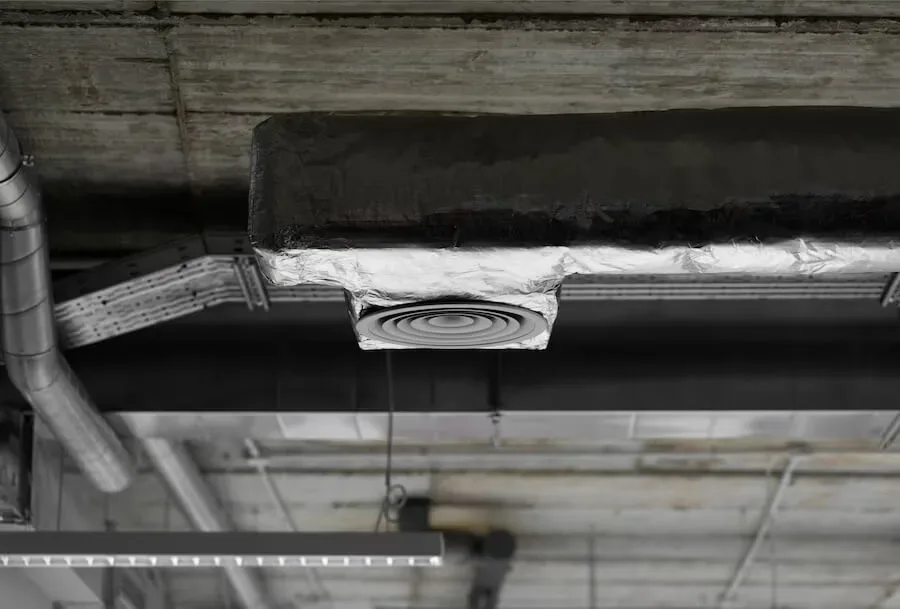
Ductwork is essential in providing healthy indoor air quality for any home. Not only does it help move air throughout the house, but it filters out dust particles, pollen, mold spores, pet dander, and other contaminants known to trigger allergic reactions or aggravate existing respiratory issues. Therefore, routine system maintenance should be part of every homeowner’s preventive measures against poor indoor air quality (IAQ).
By understanding the importance of ductwork and maintaining good IAQ through professional duct cleaning services, you can safeguard yourself and your family from airborne irritants that could otherwise cause serious harm over time. In this article, we’ll share some crucial information about why paying attention to your ducts is important when controlling allergy and asthma triggers.
Benefits Of Cleaning And Sealing Ductwork
The importance of ductwork cleaning and sealing for allergy and asthma control should be considered. Cleaning the air ducts regularly reduces allergens, dust, dirt, and other irritants that can worsen allergies or trigger asthma symptoms. Sealing leaks in the ductwork also prevents particles from entering your HVAC system.
- Reduced allergen levels – By removing dust and debris, homeowners can significantly reduce the amount of airborne allergens in their homes. This can help improve indoor air quality and make breathing easier for those with allergies or asthma.
- Improved airflow – Cleaning and sealing leaks will allow more efficient circulation throughout the home’s HVAC system, improving comfort levels within the living space.
- Lower energy bills – Properly maintained ductwork allows you to run your heating and cooling systems more efficiently, saving energy costs over time and reducing environmental impact.
Cleaning and sealing your ducts improves air quality and has clear health benefits for those suffering from allergies or asthma. It can greatly reduce allergens that may be causing irritation, sneezing, coughing, or exacerbating respiratory issues such as asthma attacks.
Effects On Allergens And Asthma Triggers
The importance of ductwork in allergy and asthma control is undeniable. When there are breaks or leaks in the ductwork, dust particles, pollen grains, and other airborne pollutants can easily enter the unit from outside sources – increasing exposure levels throughout the home or workplace. Contaminants like these travel through the HVAC system rapidly when not properly maintained. This can cause health problems for anyone living or working within that space since allergies and asthma symptoms may be triggered by irritants present in the air supply.
While regular maintenance helps to reduce potential risks associated with poor ventilation systems, homeowners and building managers can keep their environment safer for those suffering from allergies and asthma-related conditions by ensuring heating and cooling unit components function correctly and efficiently.
Proper filtration improves indoor air quality and minimizes contaminants entering via gaps in ducting. In addition, keeping up with regular filter changes will prevent airborne pollutants from circulating an entire dwelling providing healthier breathing spaces for occupants.
Proper Ventilation Strategies
Ventilation strategies are essential to controlling allergens, and asthma triggers in a home or facility. Proper ventilation involves maintaining adequate air circulation, essential for improving indoor air quality. It also helps reduce the presence of airborne particles that can trigger allergies and asthma attacks.
There are several ways to ensure proper ventilation. First, one should monitor temperature levels throughout the day, as high temperatures can lead to stagnant air conditions indoors. In addition, humidity levels should be maintained around 50% relative humidity (RH) – anything higher than 60% RH can increase allergen activity within a dwelling. Furthermore, it’s essential to consider installing exhaust fans in areas such as kitchens and bathrooms; this will help prevent excess moisture from building up inside these rooms. Lastly, windows and doors should remain open so fresh air can circulate into living spaces.
Effective ventilation strategies are crucial to reducing allergens and keeping them out of the environment. Regular maintenance is needed to ensure these systems function properly over time and keep indoor air free of contaminants that could cause health problems for inhabitants.
Air Filtration Systems
Air filtration systems are critical to any allergy and asthma control plan. They can help reduce allergens, irritants, and other airborne contaminants that trigger symptoms. Many types of air filtration systems are available, each with varying degrees of effectiveness in reducing the number of allergens in a home or workplace environment.
- Air Purifier/HEPA filter — Uses filters to capture particles from the air passing through it. It can be used for large spaces like offices or homes.
- Ventilations Systems (Exhaust Fans) — System designed to draw fresh outdoor air into your indoor space while exhausting stale indoor air outdoors. This allows you to bring in cleaner outside air while removing contaminated inside air.
- Whole-house Filtration System (HVAC Filter) — These systems use filters installed directly into central heating and cooling units to cleanse incoming airflow before distributing it throughout your home via ductwork. It is generally most cost-effective when combined with regular HVAC system maintenance.
Each type of system has advantages and drawbacks depending on individual needs, so consulting with certified air quality professionals should be considered when designing an efficient allergy and asthma control plan. With comprehensive assessment and implementation of strategies tailored to individual requirements, homeowners can maximize their protection against airborne allergens and minimize risk.

Professional Services
Professional services can include ductwork cleaning, sealing, or replacing existing ductwork. Here are four key advantages of using professional services for better allergy and asthma control:
- Ductwork Cleaning – Professionals will use specialized tools to clean out all dirt and debris from the interior surfaces of your ducts. This is important because dust accumulation in your home’s ventilation system can lead to poor air quality and exacerbate symptoms related to allergies and asthma.
- Ductwork Sealing – Professionals provide tight seals around duct connections with mastic sealant material which helps reduce leakage from the HVAC system into other parts of the house where it doesn’t belong – this can also help you save on energy costs!
- Improved Air Quality – Investing in regular maintenance services such as duct cleaning and sealing will likely improve overall air quality throughout your home. This improved air quality will greatly benefit those who suffer from allergies or asthma by reducing their exposure to airborne contaminants like pollen, dust mites, pet dander, etc., resulting in fewer breathing difficulties or discomfort caused by these allergens.
- Peace Of Mind – Knowing that your home has been professionally serviced will give you peace of mind when controlling allergies or asthma-related issues inside your residence. With proper maintenance procedures conducted regularly, you can rest assured that everything possible has been done for optimal indoor air health within your living space!
Conclusion
Cleaning and sealing your ductwork is a simple way to reduce allergens and asthma triggers in your home or business air — that’s why you shouldn’t ignore the importance of ductwork cleaning. A professional service can provide ventilation strategies to maintain optimal indoor air quality. In addition, installing an air filtration system is recommended.
At Tropic Air Conditioning, we offer cost-effective solutions tailored to your needs. You can rest assured knowing you have healthier living conditions and improved air quality. Contact us today.



